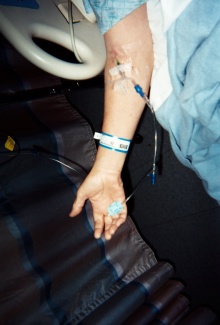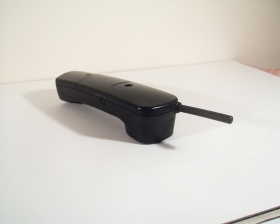Michael Brown. Eric Garner. Debra Harrell.
These are the three names that Yale Law fellow Emily Bazelon gives as examples for her police-averse policy in her Slate article, “Why I Don’t Call the Police.”
In the article, Bazelon explains that her experience as a journalist and studies of law enforcement statistics strongly indicate that, “… if the criminal justice system gets a hold of a black person, especially if he is poor, there is a terrible, heightened risk that it will try to crush him.”
Bazelon cites numerous instances, including the cases of the three people named above, in which police treatment of black individuals triggered intense national debate about the role that race plays in contemporary law enforcement.

Eric Garner was killed when Officer Daniel Pantaleo used a prohibited chokehold restraint to subdue him and failed to administer cardio-pulmonary resuscitation (CPR) until seven minutes after he stopped moving. Pantaleo was sued twice for alleged arrest- and abuse-related violations in 2013.
Debra Harrell was arrested and charged with felony “unlawful conduct toward a child” after police responded to a call and found her 9-year-old daughter at a park while her mother worked at a nearby fast food restaurant. The girl, who had a cell phone and house key, was six walking minutes away from home and was not in apparent danger.
Michael Brown was shot and killed after an encounter with police. Brown was not armed and bystanders indicate that he did not threaten or otherwise provoke the officer who shot him. Although details remain scarce, the St. Louis suburb of Ferguson, Missouri is now filled with police officers carrying military-grade equipment, callously opportunistic looting, and tensions growing with each passing day.
These cases are exceptional, but still too common. Gene Demby writes that 4,813 people died between 2003 and 2009 during or soon after arrest attempts, with 60 percent of those deaths classified as homicides. Bazelon acknowledges that the statistical likelihood of an arrest-related death is low, with 98 million arrests made during the same period, but calls the number “scary” in light of the ways that police departments appear to avoid publication of similar incidents.
Ultimately, Bazelon will “try to choose not to” involve police in the life of a black person if she can avoid it. Many people share her sentiment, electing to attempt various forms of self-help before calling the authorities to respond to crime.
In some communities, people markedly avoid calling police, instead practicing “self-preservation” and often relying on local faith leadership to help them cope with harm they have suffered. Columbus Police Commander Bob Meader acknowledges that people in inner-city neighborhoods, in particular, are typically more interdependent and “tolerate things in different ways” than people in suburban areas. Meanwhile, ubiquitous media coverage and sensationalized commentary from all angles creates additional fear, confusion, and confrontation among observers, pushing more communities to look inward for help.
Whether institutional bias pervades police departments to the extent writers like Emily Bazelon suggest, or the wounds of violence in some communities are largely self-inflicted, the reality that many people cannot interact with police officers without panicking is a dangerous problem.
So, what should you do if the police stop you? If you witness something dangerous, should you call the police?
- Your life is more important than your attitude, so don’t argue with an officer.
Whether the cop who stopped you is one of thousands of respectable officers of the law who will perform his duties admirably or one of the dangerous few who could make a lethal mistake, there is simply no reason to risk escalating a stop into a verbal confrontation (or worse). It is imperative to remember that police officers constantly endure tremendous stress and forcing an officer to decide whether you could threaten his safety is a losing proposition. When an officer stops you and wants to talk to you, speak to him as you hope he would speak to you if you wore the uniform: in a calm, respectful tone without cursing or shouting.

- Comply with the officer’s orders and let him do his job.
Police officers responding to a possible crime have two primary goals: (1) restoring peaceful and safe conditions, and (2) investigating whether a crime has occurred and securing evidence to make an arrest, if necessary. If a police officer witnessed an infraction, which is nearly always the case for traffic stops, then his decision whether to arrest you will not be positively influenced by a spirited debate. Police officers are not prosecutors, judges, or your parents – trying to argue your case to them puts your safety and your legal rights at risk. If you believe the officer is mistaken about whether you violated a law, you may politely explain yourself, but remember that whatever you say could be construed as a confession. Attempting to combat an officer’s decision to arrest you by verbally or physically resisting will almost certainly result in graver legal consequences and could spiral into a violent altercation that you cannot win.
- Respond to basic questions, calmly refuse searches, and do not speak if you are placed under arrest.
Police are legally justified to engage anyone in consensual conversation, and can stop a person for a reasonable amount of time with articulable suspicion that the person is engaged in some criminal activity, including traffic violations. Police may ask your name if the stop is justified, and it is generally advisable to comply rather than dispute the reasonable basis for the stop. Police are also permitted to ask for your consent for a search, and may even suggest that they “already know” what you are hiding. If an officer asks to search you, your vehicle, your home, or other property you control, you can always politely refuse. Your refusal cannot be used against you, and if the officer proceeds without consent, whatever he finds might be excluded in court if you are later charged. The most important thing to remember is that police misconduct can be corrected in court. Unfortunately, however, the court cannot correct the pain or disability of injuries you suffer if a police officer, fearing for his safety, uses force to subdue you.
- If you witness a crime or think someone is in danger, call the police.
In perhaps the most famous misguided self-help case in recent history, George Zimmerman attempted to apprehend Trayvon Martin himself instead of waiting for police to arrive. Zimmerman killed Martin, but was eventually acquitted of first-degree murder because the jury believed he acted in self-defense. Regardless, Martin is dead and Zimmerman’s life is forever changed for the worse. The lesson to be learned from Zimmerman is that your life and the lives of everyone else involved are imperiled if you don’t seek professional help for dangerous situations. Just like you would call the fire department if you saw a burning house, you should call the police if you see someone breaking in through your neighbor’s window. In the overwhelming majority of cases, police officers perform helpful and necessary work for the community and can turn dangerous situations into peaceful resolutions.
The Constitution can protect you from injustice, but not from loss of life.
The Fourth, Fifth, and Sixth Amendments provide the backbone of criminal procedure and guide police practices whether the officer and suspect know the rules or not. If an officer arrests you without cause, forcefully interrogates you without proper advisement of your rights, or denies access to counsel, the judge assigned to your case will unravel the damage to the extent possible under the law. Judges cannot unravel injuries or death resulting from violent confrontations with police, however, no matter how extreme the conduct. Don’t put your safety or that of the people around you at risk by forcing an officer to react to your conduct. Instead, let your lawyer and your constitutional rights do the talking.


 en, we reviewed the forensic interview of the child. She seemed beyond coached,
en, we reviewed the forensic interview of the child. She seemed beyond coached,





 The family was unable to take Justina in their car because the East Coast was experiencing horrible weather conditions and her wheelchair would not allow easy transportation in the snow. Justina was sent to BCH via ambulance and was forced to enter through the emergency room, despite the fact that she was there to see a specific doctor.
The family was unable to take Justina in their car because the East Coast was experiencing horrible weather conditions and her wheelchair would not allow easy transportation in the snow. Justina was sent to BCH via ambulance and was forced to enter through the emergency room, despite the fact that she was there to see a specific doctor.





